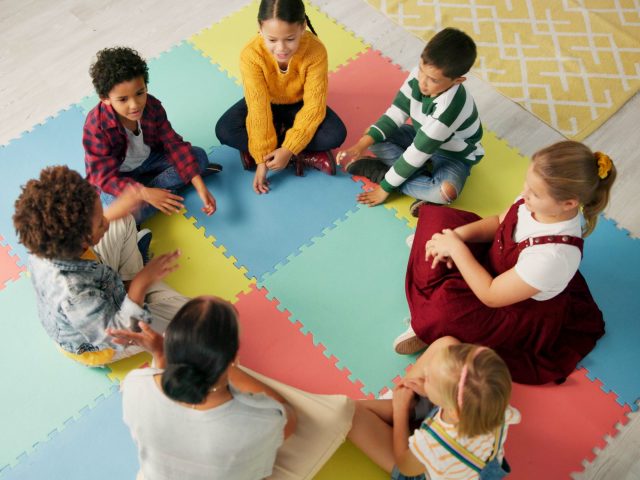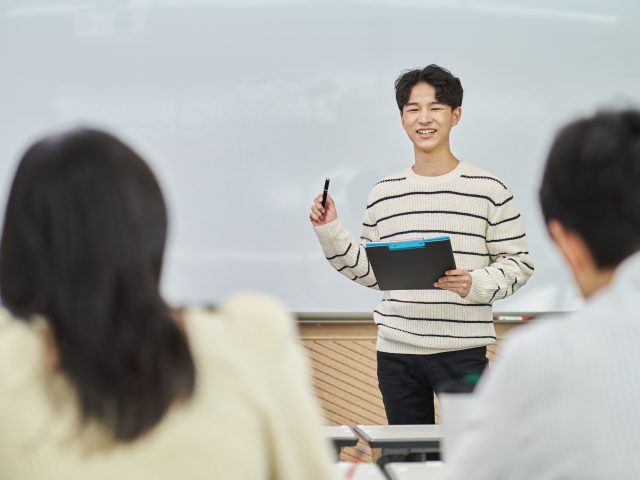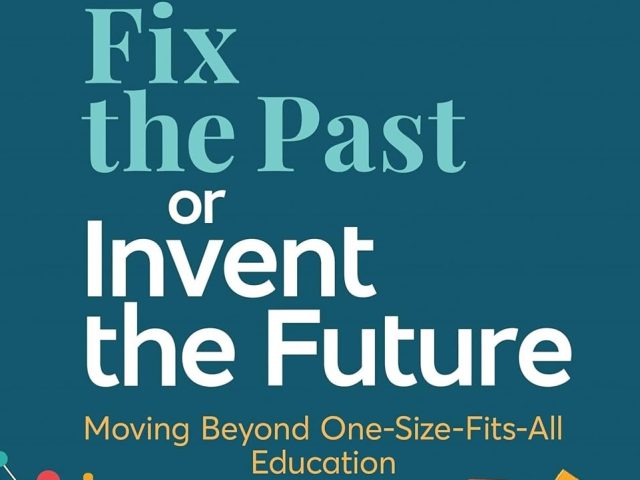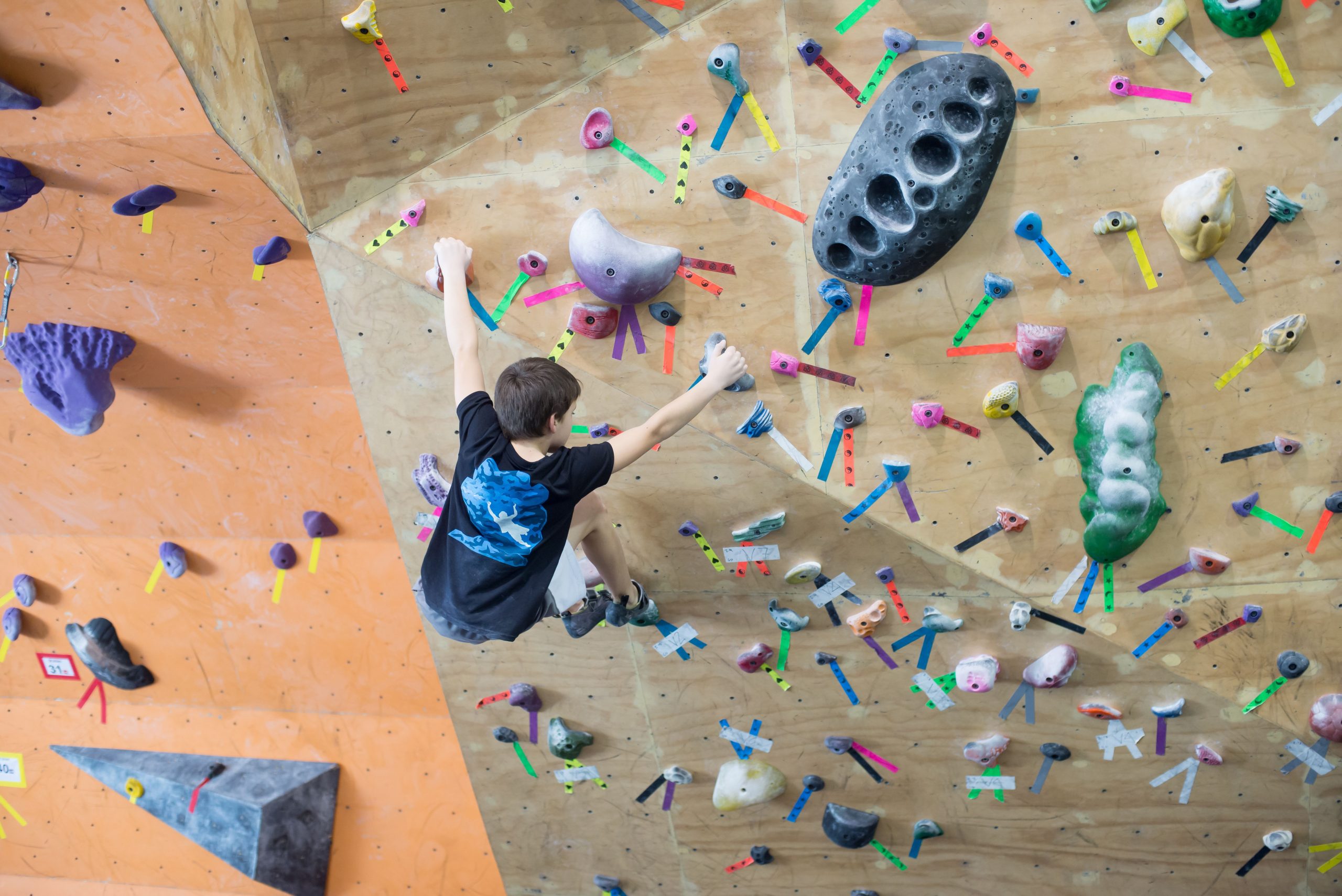
Teachers often hear that we should divide students into different groups and teach them differently.
Most famously, learning styles theory (now thoroughly debunked) says that we can think of students as auditory, visual, or kinesthetic learners. It further suggests we should align our instruction with their natural learning style: visual learners get visual instruction, and so forth.
(To be very clear: visual learners should NOT get visual instruction, because visual learners do not exist. We all learn through our senses, and the best one to prioritize depends on the content being learned.)
Honestly, most advice that sounds like “sort-students-and-teach-them-differently” lacks good research support.
At least one obvious exception to this rule demands attention: prior knowledge.
Imagine this hypothetical:
- You and I are taking a class on the Spanish Civil War.
- You know considerably more about Spain, fascism, military history, and Picasso than I do.
- That is: you are, relatively speaking, an “expert.” I am, relative to you, “a novice.”
In this hypothetical, it just makes sense to suspect that we will benefit from different instructional strategies.
This argument goes by the name the “Expertise Reversal Effect.” That is: instructional supports that benefit novices instead interfere with learning for experts.
- I will need A LOT of instructional support, and my learning will suffer if I don’t get it.
- You will probably learn best if you get a fair amount of freedom and intellectual room to knock about on your own.
If you have to sit through all the basics that I find essential (“here is a map of Spain; notice Madrid here, Barcelona here, and Guernica here”), you’ll feel bored and constrained. And you’ll learn less than you would with greater freedom.
So far in this blog post, the expertise reversal effect is a hypothesis. Is it supported by evidence?
Does It Work in Theory?
In a minute, I’ll explore the data. (Preview: yes, this hypothesis has good research support.)
Before we get there, let’s pause to consider WHY the expertise reversal effect might be true.
A recent meta-analysis offers a few explanations; I’ll focus on two of them.
First: cognitive load theory tells us we want to get rid of needless extra mental work (“extraneous cognitive load”) so that students can focus on the essential mental work (“intrinsic cognitive load”).
- In my Spanish Civil War hypothetical, my working memory will be threatened by all the new information. I will learn more if the teacher organizes it and focuses on the essentials.
- You, however, have lots of working-memory headroom — because you store more relevant information in long-term memory than I do — so extra information isn’t always extraneous. It might, in fact, help you figure out new and unforeseen ideas.
Second: self-determination theory tells us that student motivation benefits from their feeling autonomy, competence, and relatedness.
- For me — the Spanish Civil War novice — I will feel more competent if a supportive teacher helps me out, and more related to my teacher as well.
- All that extra support, however, might reduce feelings of autonomy for an expert like you.
Now that we have some reason to think that the expertise reversal effect has a plausible theoretical background, let’s see if we’ve got FACTS to support it.
Crunching the Numbers
You want data; we’ve got data.
More precisely, Tetzlaff, Simonsmeier, Peters, and Brod have data from that recent meta-analysis mentioned above. This team found 60 relevant studies; those studies included 176 relevant effect sizes, and included almost 6000 participants. (“Effect size” means, roughly, what the name suggests: the size of the effect of teaching one way or another.)
In brief:
- Yes: students with a LOW level of prior knowledge learn more from high-support pedagogy than low-support pedagogy. (Stats folks: the d-value here is 0.505.)
- Yes: students with a HIGH level of prior knowledge learn more from low-support pedagogy than high-support pedagogy. (D-value: -0.428.)
Those d-values are traditionally in the “medium size” range. I speak d-value, and I pay attention to numbers that size.
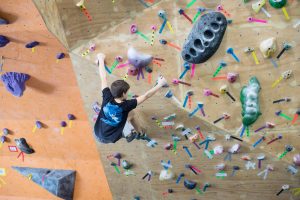
The expertise reversal effect gets bigger as students get older. The effect was strongest in higher ed; we don’t honestly have lots of studies in primary school.
It also varies somewhat depending on academic discipline. (There’s less of an effect in language and humanities.) But — roughly speaking — we can say that “beginners benefit from higher-structure pedagogy; experts benefit from lower-structure pedagogy.”
Not So Fast
But wait just a minute. Why did I slip the phrase “roughly speaking” into that previous sentence? We’ve got all those data — shouldn’t we just do what they say?
Let me focus on one of several reasons.
Sometimes research considers variables that are either one thing or the other:
- The switch is either on or off.
- The school is either in Hawai’i or in Delaware.
- The subject being studied is either chemistry or Latin.
At other times, research considers variables that fall along a continuum.
- The research might sort teachers into a “cheerful” group and a “glum” group. But not all “cheerful” teachers are equally cheerful. Heck, on some days, they might be glum.
- Research might describe playground behavior as “cooperative” or “competitive,” but not all cooperation is equally cooperative. Heck, some cooperation is a kind of competition. (From the little I’ve seen of it, the entire Survivor franchise depends on competitive cooperation.)
And so forth.
Notice that — in my “roughly speaking” summary — ALL OF THE KEY TERMS are continuous.
- There is no exact line separating LOW prior knowledge from HIGH prior knowledge. Prior knowledge exists on a continuum.
- There is no exact line separating LOW-structure pedagogy from HIGH-structure pedagogy. Pedagogy exists on a continuum of support.
For that reason, classroom teachers can’t simply “do what the research says.”
I might say to myself:
“My 1st period class has slightly more prior knowledge than my 3rd period class. For that reason, my instruction 3rd period should be somewhat higher structure than during 1st period. But they’re both novice groups compared to my advanced class 5th period, which should have lower-structure than both…”
These delicate — even hunchy — internal monologues can be guided by the expertise reversal effect. But that effect and this meta-analysis don’t translate into step-by-step rules that teachers can follow.
Now, some signs will be obvious.
- If my students can’t define basic terms — “what’s a noun again?” — they’re clearly novices.
- If they spontaneously combine ideas in ways we haven’t discussed — “I want to strengthen this sentence by using the participle as a gerund” — they’re well into expert territory.
For this reason, I should begin classes and units with questions designed to identify my students’ place along the low-to-high prior knowledge contiuum. And, I should be reasonable about the fuzzy limitations of that placement.
In Sum
This meta-analysis suggests that the expertise reversal effect is a thing.
When possible, teachers should provide beginners with relatively more pedagogical structure, and experts relatively less.
Part of our own developing expertise will be adapting — lesson-plan by lesson-plan, class by class, unit by unit — to those subtle gradations.
Pashler, H., McDaniel, M., Rohrer, D., & Bjork, R. (2008). Learning styles: Concepts and evidence. Psychological science in the public interest, 9(3), 105-119.
Tetzlaff, L., Simonsmeier, B., Peters, T., & Brod, G. (2025). A cornerstone of adaptivity–A meta-analysis of the expertise reversal effect. Learning and Instruction, 98, 102142.
